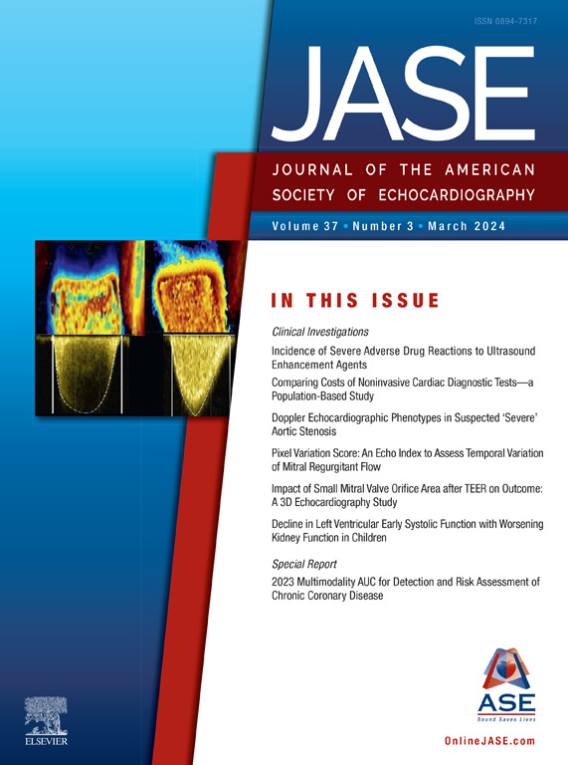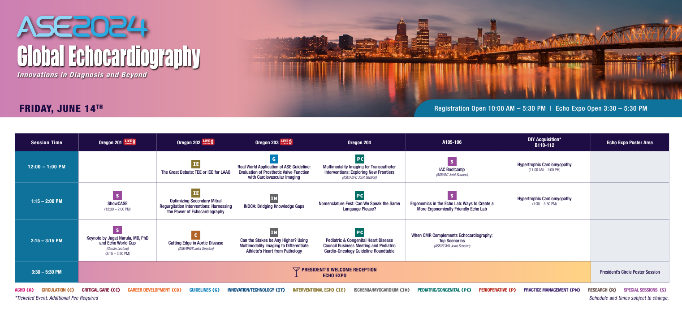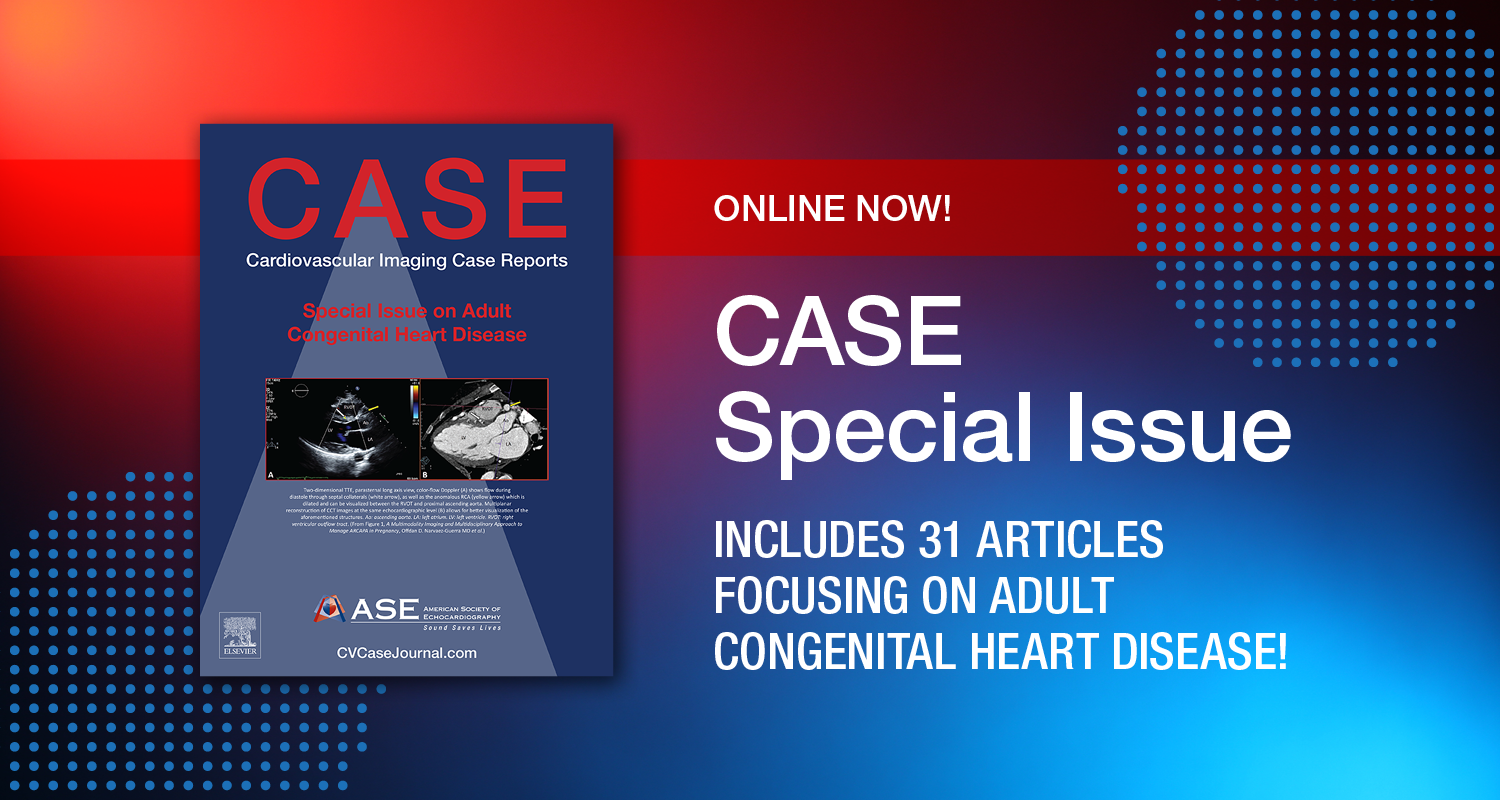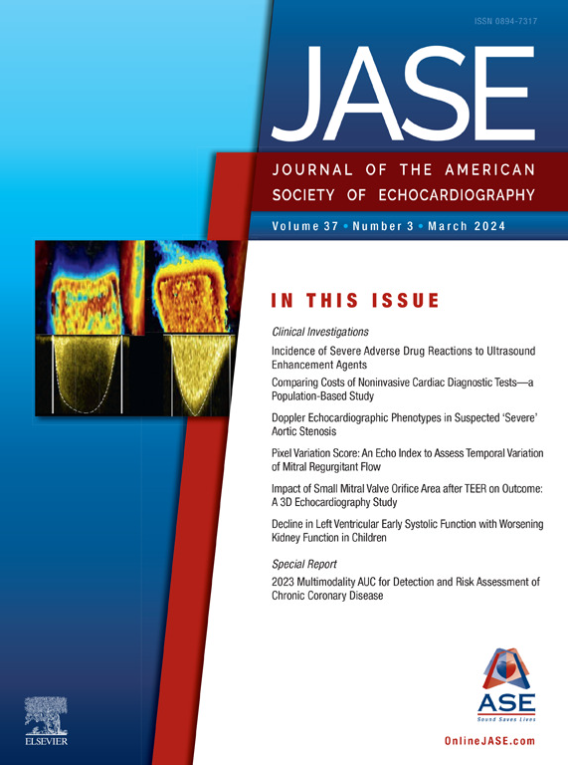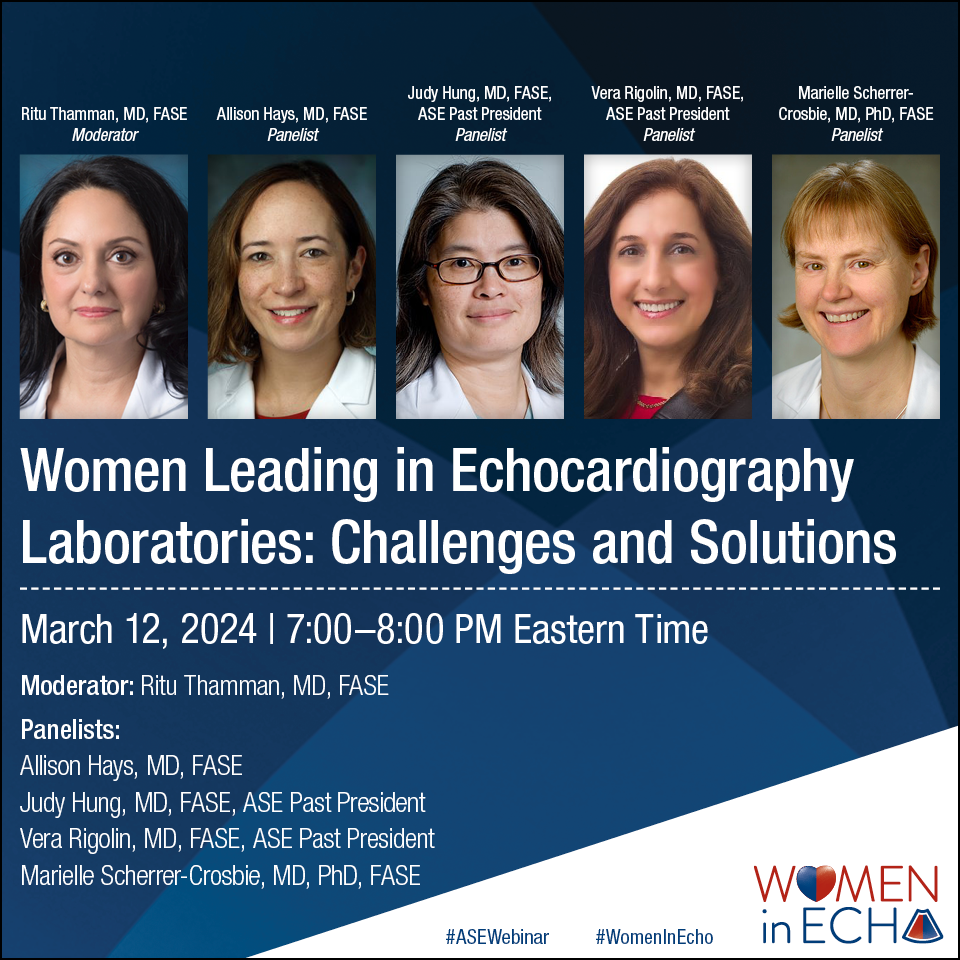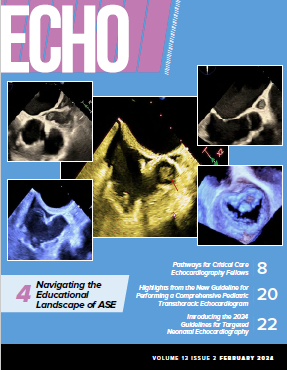The March issue of JASE is now online with much to showcase including a variety of clinical investigations ranging from safety of ultrasound enhancement agents, noninvasive testing for coronary heart disease, Doppler in valvular heart disease, 3D TEE after transcatheter mitral valve repair and outcome, septal perforator flow in HCM, and LV function in children with chronic kidney disease. A handful of editorials and letters to the editor accompany two brief research communications to round out this issue.
Dr. Pellikka’s editorial outlines the artificial intelligence content of particular interest to JASE for authors interested in submitting on this topic. Finally, Dr. Eidem’s President’s Message highlights congenital heart disease and ASE’s efforts to bring education and awareness to this important patient population during his presidency. Be sure to check out March’s Author Spotlight that features Mays T. Ali, MD, and Jeremy J. Thaden, MD, FASE, discussing their recent paper on adverse drug reactions to ultrasound enhancement agents.
Learn more here about the March issue and read what author Idan Roifman, MD, MSc, had to say about highlighted paper, “Comparing Costs of Noninvasive Cardiac Diagnostic Tests—a Population-Based Study.”

